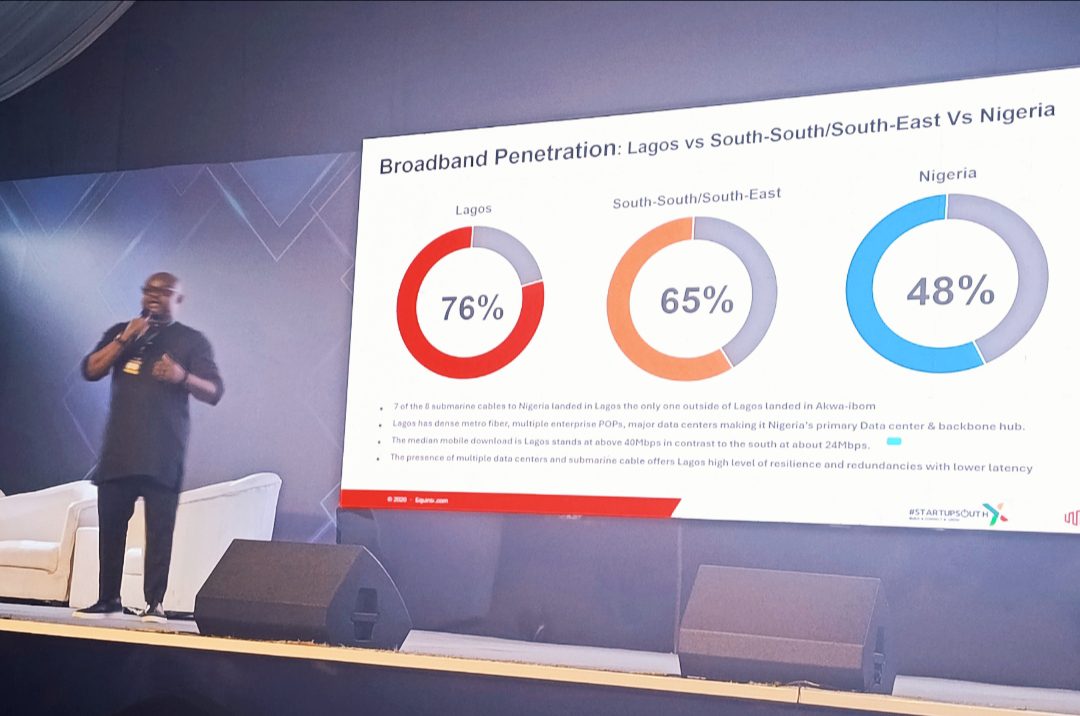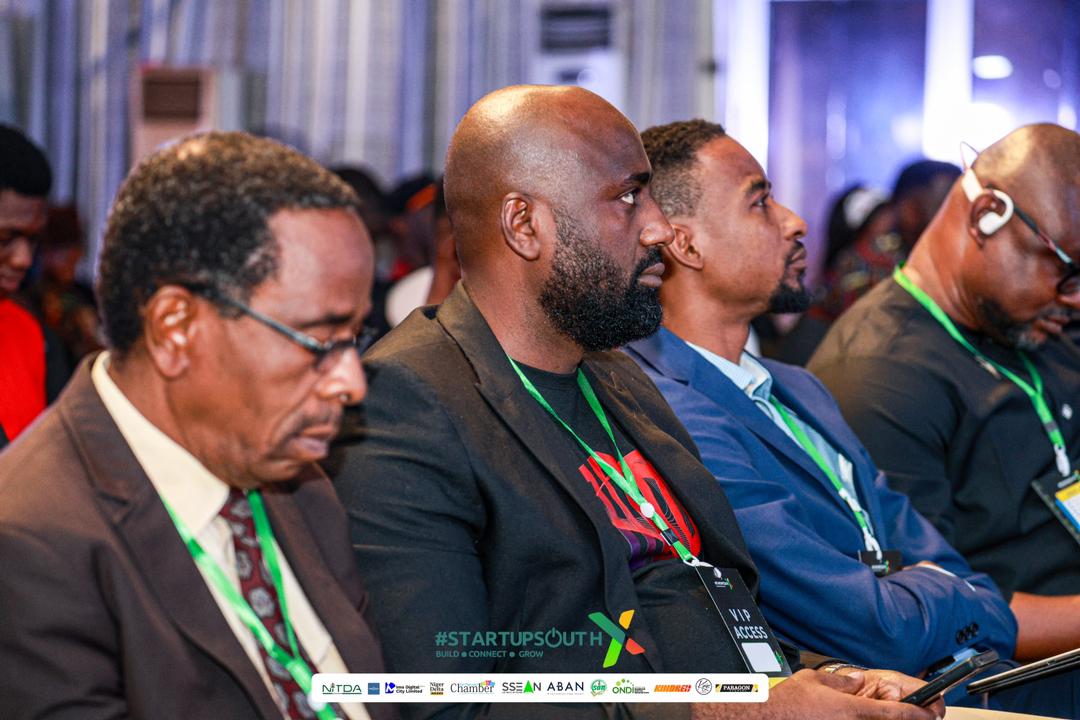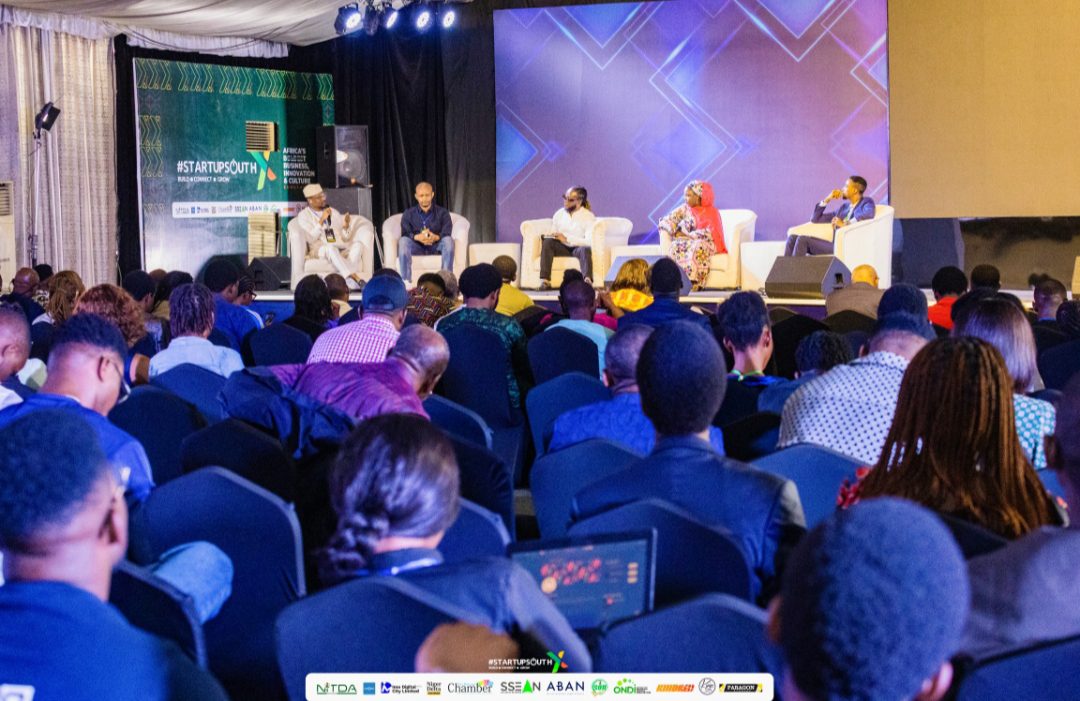







































#StartupSouth: Stakeholders discuss southern Nigeria’s path to boundless connectivity
At the ongoing tenth edition of #StartupSouth, in Port Harcourt, conversations about innovation, policy, and infrastructure converged on one central theme: connectivity as destiny. For too long, the South-South and South-East regions of Nigeria have been overshadowed by Lagos, which dominates the country’s startup and technology ecosystem.
But as Ikechukwu Mamah, Senior Manager, Network Services Delivery at Equinix West Africa, declared in his keynote, “That is about to change.”
Mamah’s keynote address, titled “Shortening the Path to Boundless Connectivity in South-South Nigeria”, set the tone for the day.
His address was followed by a panel discussion on “Scaling Digital Infrastructure: Harnessing Digital Rails & Emerging Tech for Competitive Growth”, featuring David Mosaku of Equinix West Africa, Zahira Yerima, Bernard Ewah of NITDA, Obinna Onyejeli of MyAddy, and Ahmad Mukoshy of NIRA, moderated by TechNext’s Blessed Frank.
Together, their insights painted a picture of a region at the cusp of digital transformation, if only stakeholders seize the moment.
Connectivity: Why Lagos leads, and why it may not for long
“Why is Lagos the hub of everything happening?” Mamah asked. “Lagos is the hub because the connectivity is there. We have wonderful youths across this region doing a wonderful job, but if you don’t have access to the infrastructure, you won’t be able to do much.”

Today, Lagos’ broadband penetration hovers around 70%, far above the national average of 48%. The South-South and South-East trail between 40% and 65%. The disparity is rooted in hard infrastructure: submarine cables. Of Nigeria’s eight submarine cables, seven land in Lagos.
But a game-changer has arrived. “Equinix, through the 2Africa project, has been able to lay the first submarine cable that landed in the South-South,” Mamah announced. “It means we are on the verge of changing the game. Now the question is: how ready are we to latch onto that?”
The 2Africa cable, which landed in Akwa Ibom and is being extended to Port Harcourt, will triple Nigeria’s total internet capacity. For the first time, South-South cities won’t need to route all their digital traffic through Lagos.
Mamah underscored the ripple effect of this infrastructure. “Once a cable lands, the capacity will be sitting there in the ocean. You have to transport this capacity from the ocean to your offices, your schools, and your hospitals. For you to do that, you need government approval. And in this region, it is worse; the charges for right-of-way are often double what the federal government sets.”
Policy, he insisted, is as crucial as fibre. “Government should play a very strategic role for us to be able to enjoy a Lagos in the southern part of Nigeria.”
Equinix is already extending the Akwa Ibom landing to Port Harcourt and building a Tier III data centre, the first of its kind in the region, scheduled for launch in the coming months.
“So the question is, infinite capacity is in the ocean; we are transporting it down to your region, and we are building for you a data centre. The question is, how ready are you?” Mamah challenged the audience.
For startups, the implications are huge. This means lower entry barriers. “Founders will no longer have to relocate to Lagos for scalable infrastructure, as high-speed, reliable internet now exists,” he noted.

Also, remote work viability. The future of work is distributed. A developer in Port Harcourt can work on the same team as someone in Silicon Valley. As Mamah noted, “This region does not lack talent. What we lack is opportunity. With this infrastructure, you can do all those things you want to do.”
The panel: Scaling the rails
The panel deepened these themes. For David Mosaku, the South-South’s new submarine landing is about resilience as much as speed. “Today, everything has to go through Lagos. Once Lagos is shut down, everywhere is grounded. But with the submarine systems in the South-South, we get lower latency, more reliable access, and redundancy. You really don’t have to come to Lagos any longer.”
But physical fibre alone won’t suffice. Bernard Ewah of NITDA, speaking through a representative, highlighted policy gaps: “Policy often lags behind infrastructure. Right-of-way is still one of the challenges for connectivity in the South-South. NITDA is working on a National Sovereign Cloud Policy to close execution gaps and enhance cloud and data services.”
For founders, innovation sometimes means reimagining infrastructure itself. Obinna Onyejeli of MyAddy described how his startup created a digital addressing system called “Locals”.
“We mapped out every street in Nigeria and assigned a digital code, because some streets don’t even have names. This unlocks logistics, healthcare, insurance, and government services. With Locals, you can even generate heat maps during disease outbreaks. Infrastructure isn’t only physical; it’s also digital,” he noted.
Mukoshy, who built GigaLayer and now serves as Executive Director at NIRA, stressed collaboration. “Government can’t just stop at policies. They should create SME packages, lower right-of-way fees, and incentivise startups. The world is global, and Nigerian entrepreneurs are expected to deliver at the same standard as Croatia or Romania. Without robust local infrastructure, it’s almost impossible.”
A recurring theme was visibility. “We need to invest massively in publicity, marketing, and information sharing,” one panellist argued. “A lot of things that exist in Nigeria, you have to literally have credentials to even hear about them. They’re not mainstream.”

This lack of awareness can keep even existing infrastructure underutilised. “Our infrastructure is substantial, even impressive,” Onyejeli reflected, “but the problem is that not a lot of people know. And those who know are chasing the wrong things.”
As the session wrapped up, the call to action was clear: stakeholders, governments, the private sector, and startups must collaborate deliberately.
“Certain collaborations hand in hand can help startups afford to get connected, afford to build, and afford to do more,” Mukoshy noted. “Government lowering fees, private sector investing in data centres, startups innovating around last-mile services – this is how penetration trickles down to the average person in the village.”
Or, as Mamah put it bluntly in his keynote: “The opportunity that we thought we lacked has been provided for us. Now is the time to latch onto it.”
For decades, ambitious founders from Port Harcourt, Uyo, or Enugu had one option: move to Lagos. Infrastructure dictated geography. But with submarine cables now landing in Akwa Ibom, data centres rising in Port Harcourt, and startups like MyAddy reimagining digital infrastructure, that may no longer be the case.
“Is there still a need to relocate to Lagos?” Mamah asked. “Now is the time for you to start rethinking all those things.”
The South-South’s digital renaissance won’t be automatic. It will take government resolve, startup creativity, and private sector investment. But if #StartupSouthX revealed anything, it’s that the groundwork is already being laid. And with boundless connectivity finally within reach, the question is no longer IF the South-South can catch up to Lagos, but WHEN.

